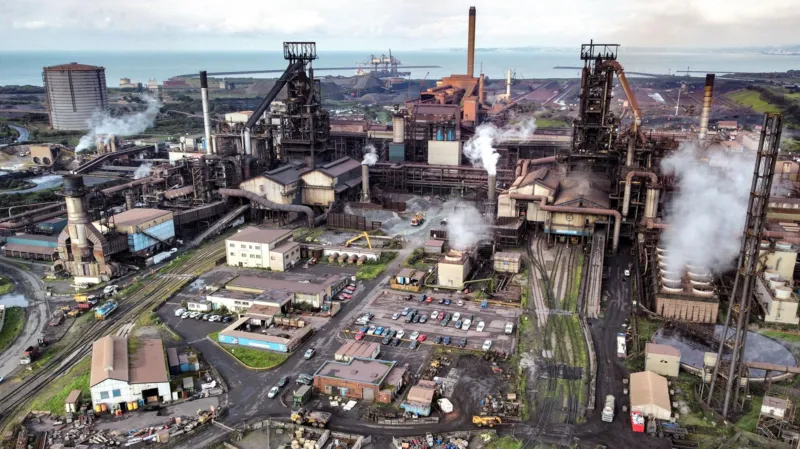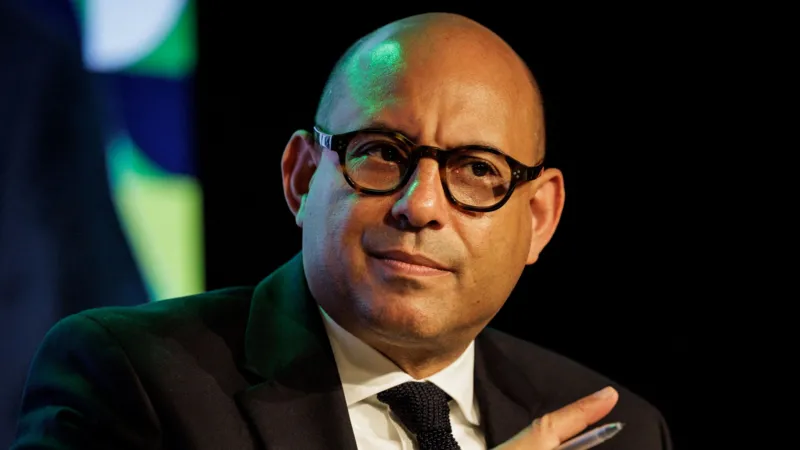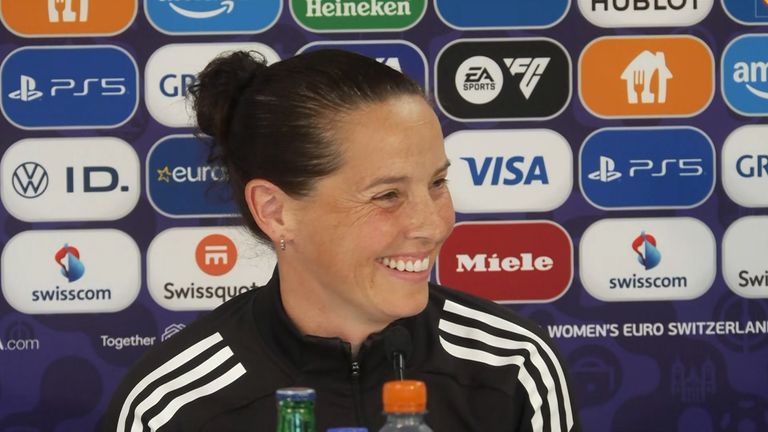Tata talks under way but no full jobs guarantee - Reynolds
The UK government's new business secretary has said "job guarantees" will form part of the negotiations with steel giant Tata about its Port Talbot site.

Jonathan Reynolds said there was "a better deal available" on the future of the plant, but said newer technologies would employ fewer people.
The previous Conservative government agreed a £500m rescue package to help keep the plant open and shift to greener production methods, but 2,800 UK jobs would still be lost.
Mr Reynolds said he and Prime Minister Sir Keir Starmer had already spoken to Tata and were involved in active negotiations over the Port Talbot plant's future.
"I'm going to make sure that job guarantees are part of the negotiation that we're having," he told Sunday with Laura Kuenssberg.
Pressed on whether that meant he could guarantee all jobs, he responded: "Blast furnaces employ more people than some of the newer technologies available.
"So there's a range of things you have to understand but I absolutely agree with the point that we have to make sure that this is a transition which works for working people and that they're part of that."
One of the furnaces at Port Talbot closed last Friday and a second will shut in September
Mr Reynolds said the timescale for the government's negotiations was "not a large one".
He said Labour's manifesto had pledged £2.5bn on top of the £500m already agreed by the former government.
"It's not about underwriting loss making businesses in perhaps the way we might have thought of industrial policy in the past. It is about being a partner for investment in the future," he said.
"There is more money available for the steel industry under our plans for government, but that's about making sure we make this transition with the private sector together and recognise how we have to make sure that decarbonisation is not de-industrialisation and we've got to do that together.
"But there is a better deal available for Port Talbot and the steel industry as a whole - I'm sure of that."
Glimmer of hope
The idea of future investment offers a glimmer of hope for those who are seeking to mitigate the impact of Tata's plans.
Labour had discussed supporting future investment in Port Talbot during the general election campaign, and Tata bosses had been open to the idea.
But future investment will not save jobs in the short term. Even Tata Steel's existing commitment to building an electric arc furnace next year will require far fewer workers than are currently employed in the heavy end of blast furnace production.
Tata steelworks
Labour pledges £2.5bn steel investment on top of £500m already agreed by the former government
Unite union general secretary Sharon Graham said the steel industry had been decimated.
She said it needed investment, job guarantees and procurement legislation that "all UK infrastructure projects should use UK steel".
"We need to back British steel, we need to back British business - investment is going to be key," she told the BBC.
Tata Steel UK head Rajesh Nair said he was looking forward to working with the UK government on growing green steel production.
"We will be engaging with new ministers over our ambitious plans to invest in and transform Port Talbot with electric arc furnace steelmaking, and to support our workers through this necessary but difficult transition," he said earlier this week.
Tata says Port Talbot’s blast furnace operation has been incurring losses of £1m a day
One of the steelworks' furnaces closed on Friday and a second is due to close in September, ending Port Talbot’s ability to produce liquid iron from ore.
The company said the blast furnace operation was incurring losses of £1m a day and was financially unsustainable.
A planned strike for 8 July was cancelled by the Unite union after Tata threatened to shut both furnaces due to safety fears over a staff walkout.
Tata has been in talks with unions since January when it unveiled plans to radically transform its operations to deal with its financial losses and cut carbon emissions.
The blueprint was dubbed a "crushing blow" and the "worst-case scenario" by unions.
-bbc






